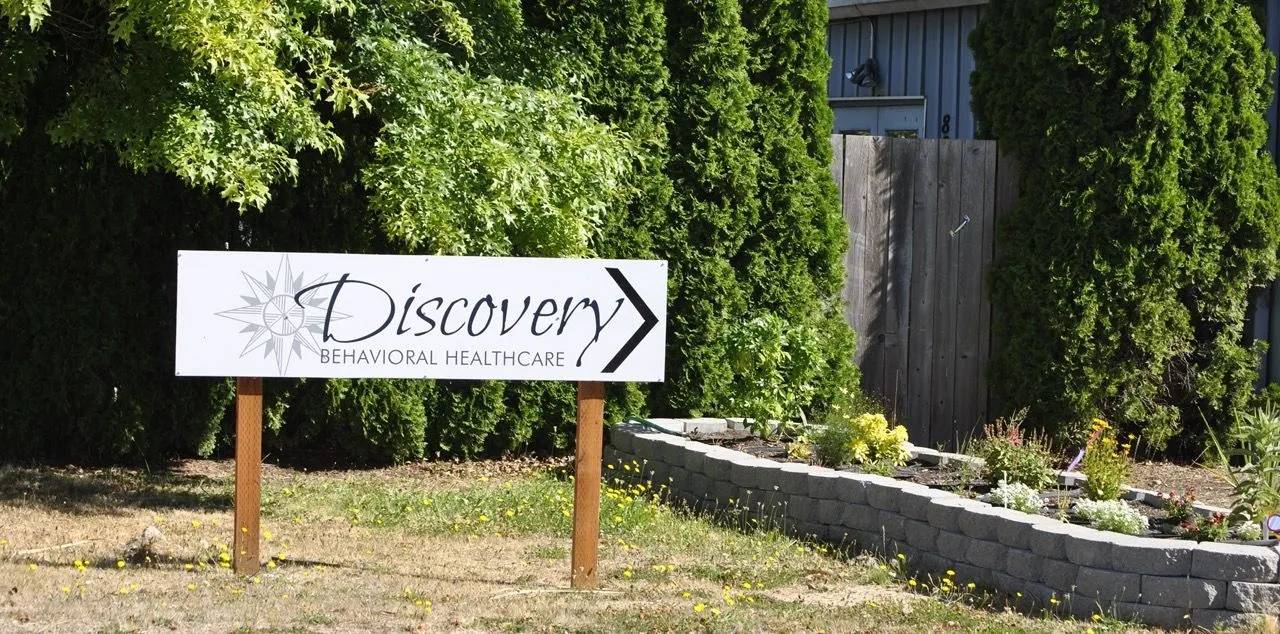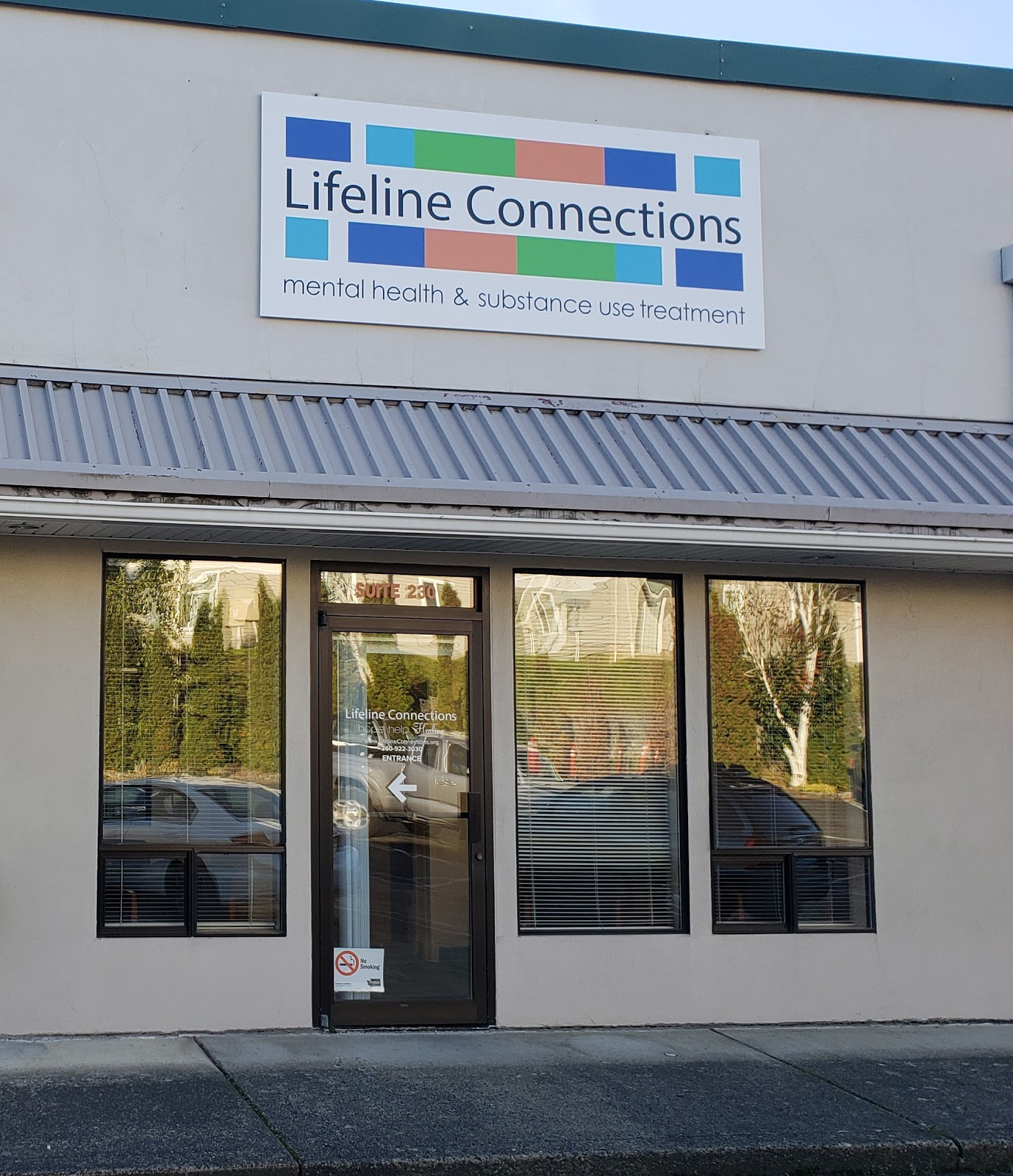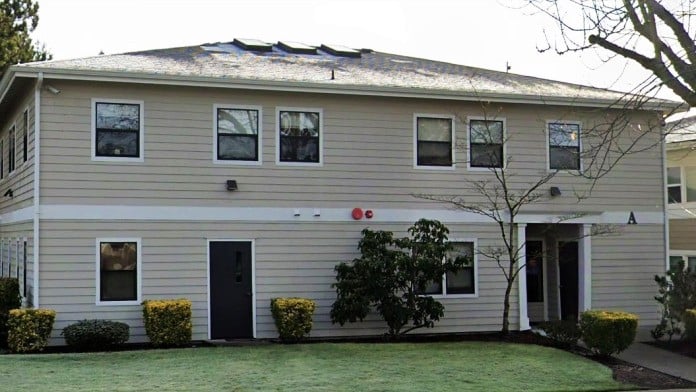Gray wolf was the best thing that happened to my brother after treatment. The staff and care is better than any other secondary recovery you’ll find. I definitely recommend for secondary recovery. It had a lasting impact on my brother and family,
About Gray Wolf Ranch
This program blends residential treatment with outdoor activities. With an average stay of five months, you’ll have plenty of time to learn and practice new coping skills. You can participate in group and individual therapy, 12 step programming and holistic approaches.
One great feature that caught my eye was their prime location. Close enough to town but far enough from distractions you’ll benefit from a balance of accessibility and tranquility. Their serene campus boasts 15 acres of native plants and tall trees to reflect and meditate in nature. Still, you can attend daily commitments like work, school and community service nearby in downtown Port Townsend.
What stands out most to me is their signature wilderness treks. These five to ten-day outdoor adventure groups provide an incredible way to practice life and coping skills in a new environment. You’ll benefit from working together and fostering strong connections with peers. During your stay you’ll participate in at least two.
Another feature that caught my eye was their emphasis on 12 step principles. Spirituality is often a beneficial element in recovery for many. They encourage 12-Step participation in every aspect of daily life. I think is great because you’ll benefit from connecting with a higher power that can be a driving force in your recovery journey.
Latest Reviews
Rehab Score
Gallery
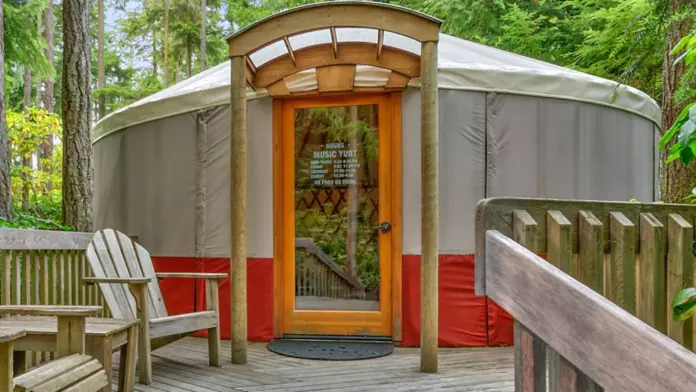
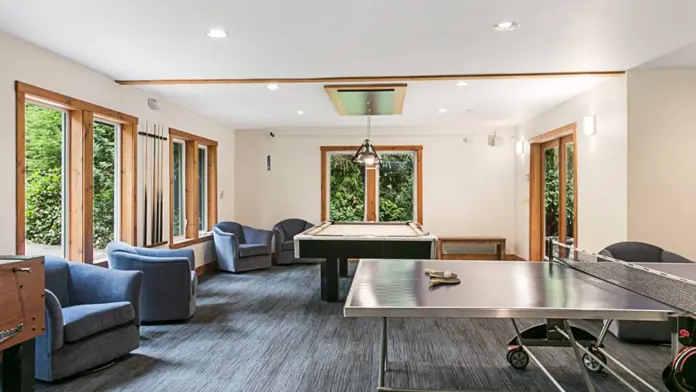
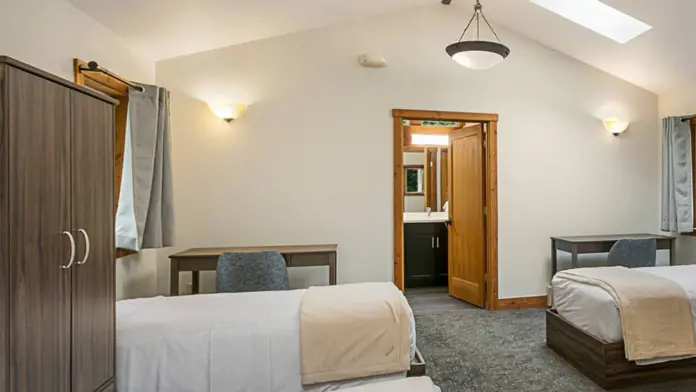
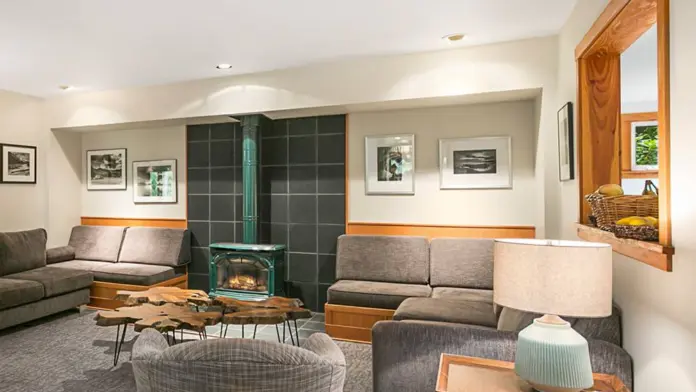
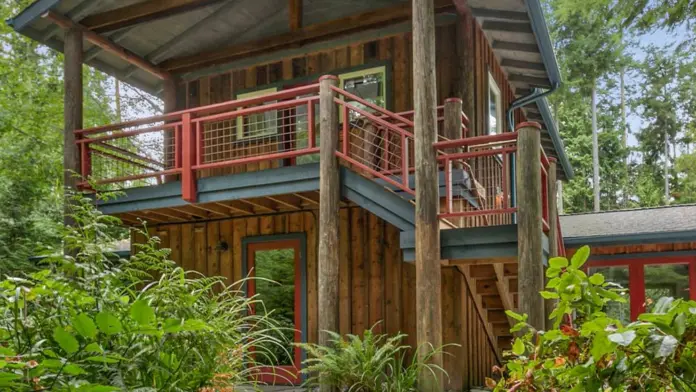
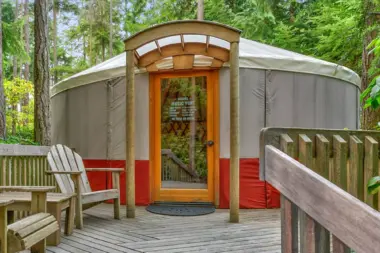
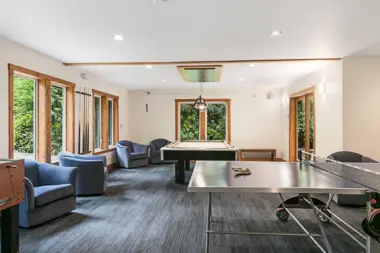
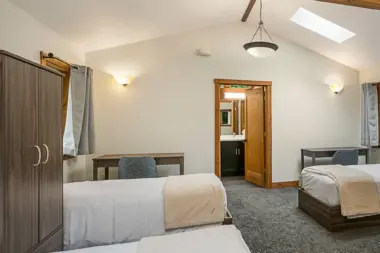

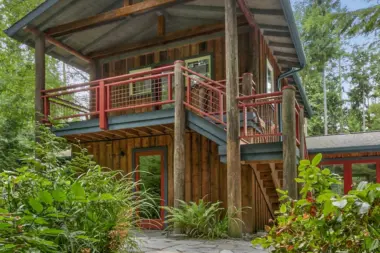
Accepted Insurance
Other Forms of Payment
Private insurance refers to any kind of healthcare coverage that isn't from the state or federal government. This includes individual and family plans offered by an employer or purchased from the Insurance Marketplace. Every plan will have different requirements and out of pocket costs so be sure to get the full details before you start treatment.
Self-pay involves paying for treatment out of your own pocket. You can use savings or credit, get a personal loan, or receive help from family and friends to fund your treatment. If you don't have insurance or your insurance plan doesn't cover a specific program, self-pay can help ensure you still get the care you need.
Financial aid can take many forms. Centers may have grants or scholarships available to clients who meet eligibility requirements. Programs that receive SAMHSA grants may have financial aid available for those who need treatment as well. Grants and scholarships can help you pai for treatment without having to repay.
Addiction Treatments
Levels of Care
Their Primary Care treatment program is a high intensity, residential, 24/7 structured care and supervision model that includes complete medical checkups, biopsychosocial assessments, psychological and psychiatric consultations, and individual and group therapy for each resident. This program is for residents who need stabilization and education on addiction and recovery before joining the extended care recovery program. Gray Wolf’s Extended Care program is ideal for individuals who have been through Primary Care at Gray Wolf Ranch or elsewhere and have been introduced to addiction treatment.
At certain points in the recovery process, it's important to have support available 24/7. 24-hour clinical care offers a safe environment in which to recover from drug or alcohol addiction in peace, knowing medical detox and other treatment will happen with professionals on hand.
They primarily use the 12 step model of recovery because it is proven to be effective, but no one at Gray Wolf is required to follow this model. 12-step programs are addiction recovery models based on Alcoholics Anonymous (AA). Beginning steps involve admitting powerlessness over the addiction and creating a spiritual basis for recovery. Middle steps including making direct amends to those who've been hurt by the addiction, and the final step is to assist others in addiction recovery in the same way.
The recovery process doesn’t end with graduation from Gray Wolf — it’s a lifelong journey. To facilitate that journey, we prepare continuing care plans for our residents to ensure their success and wellbeing after leaving Gray Wolf. Continuing care plans include recommendations for sober living, providing referral resources for ongoing support, vocational and/or educational placement, and staff follow-ups. The recovery process doesn’t end with graduation from Gray Wolf — it’s a lifelong journey. To facilitate that journey, we prepare continuing care plans for our residents to ensure their success and wellbeing after leaving Gray Wolf. Continuing care plans include recommendations for sober living, providing referral resources for ongoing support, vocational and/or educational placement, and staff follow-ups.
Gray Wolf’s sober house, the Wolf Den, is a continuing-care option for graduates of their Extended Care program. Sober living offers the opportunity to continue the recovery process in a real-world setting with a strong network of continued support. It’s a safe, sober environment where residents can practice the life skills and strategies learned at Gray Wolf in an independent setting. Residents continue their engagement with staff, participate in local 12 step meetings, build their community, continue their education or vocational interests, and participate in Gray Wolf Ranch activities and trips.
Treatments
The goal of treatment for alcoholism is abstinence. Those with poor social support, poor motivation, or psychiatric disorders tend to relapse within a few years of treatment. For these people, success is measured by longer periods of abstinence, reduced use of alcohol, better health, and improved social functioning. Recovery and Maintenance are usually based on 12 step programs and AA meetings.
Effective drug rehab in Washington integrates care for the whole person, offering comprehensive solutions to addiction. Treatment methods address mental, physical, and relational aspects of substance abuse.
Many of those suffering from addiction also suffer from mental or emotional illnesses like schizophrenia, bipolar disorder, depression, or anxiety disorders. Rehab and other substance abuse facilities treating those with a dual diagnosis or co-occurring disorder administer psychiatric treatment to address the person's mental health issue in addition to drug and alcohol rehabilitation.
Opioid rehabs specialize in supporting those recovering from opioid addiction. They treat those suffering from addiction to illegal opioids like heroin, as well as prescription drugs like oxycodone. These centers typically combine both physical as well as mental and emotional support to help stop addiction. Physical support often includes medical detox and subsequent medical support (including medication), and mental support includes in-depth therapy to address the underlying causes of addiction.
Substance rehabs focus on helping individuals recover from substance abuse, including alcohol and drug addiction (both illegal and prescription drugs). They often include the opportunity to engage in both individual as well as group therapy.
Programs
Adult rehab programs include therapies tailored to each client's specific needs, goals, and recovery progress. They are tailored to the specific challenges adult clients may face, including family and work pressures and commitments. From inpatient and residential treatment to various levels of outpatient services, there are many options available. Some facilities also help adults work through co-occurring conditions, like anxiety, that can accompany addiction.
Young adulthood can be an exciting, yet difficult, time of transition. Individuals in their late teens to mid-20s face unique stressors related to school, jobs, families, and social circles, which can lead to a rise in substance use. Rehab centers with dedicated young adult programs will include activities and amenities that cater to this age group, with an emphasis on specialized counseling, peer socialization, and ongoing aftercare.
Clinical Services
Cognitive Behavioral Therapy (CBT) is a therapy modality that focuses on the relationship between one's thoughts, feelings, and behaviors. It is used to establish and allow for healthy responses to thoughts and feelings (instead of unhealthy responses, like using drugs or alcohol). CBT has been proven effective for recovering addicts of all kinds, and is used to strengthen a patient's own self-awareness and ability to self-regulate. CBT allows individuals to monitor their own emotional state, become more adept at communicating with others, and manage stress without needing to engage in substance abuse.
Creativity is inherently healing, and can help those in recovery express thoughts or feelings they might not otherwise be able to. Creative arts therapy can include music, poetry/writing, painting, sculpting, dance, theater, sandplay, and more. Unlike traditional art, the final product matters far less than the experience of creation and expression itself.
Trek is an experience, not a concept. There is evidence-based research highlighting the therapeutic benefit of wilderness therapy, but something occurs out in nature that is beyond the standard therapeutic model. Challenge and self-discovery are key components of the Trek program as well as health and wellness. Trek teaches residents the value of their personal experiences, their connection to nature, and their relationships with others. They learn to hold themselves and others accountable and become interdependent rather than co-dependent.
When someone we love abuses substances it affects the entire family system. The stress families feel when dealing with a loved one who is addicted to alcohol or other drugs often reaches a breaking point and throws the family system into a state of chaos with anger and confusion felt by everyone. At Gray Wolf, they offer wrap around care for families and their loved ones because they believe that supporting families is crucial. Participation in Gray Wolf’s family programming greatly increases success in recovery and overall family wellness. Every family is unique, so they develop individualized family wellness plans to support each family throughout treatment at Gray Wolf Ranch.
Group therapy is any therapeutic work that happens in a group (not one-on-one). There are a number of different group therapy modalities, including support groups, experiential therapy, psycho-education, and more. Group therapy involves treatment as well as processing interaction between group members.
In individual therapy, a patient meets one-on-one with a trained psychologist or counselor. Therapy is a pivotal part of effective substance abuse treatment, as it often covers root causes of addiction, including challenges faced by the patient in their social, family, and work/school life.
Gray Wolf Academy offers several classes to help residents learn vital skills and manage the challenges of daily life, including Nutrition, Personal Finances, and Time and Health Management. These classes are optional but highly recommended, and over 75% of Gray Wolf residents take multiple classes. Instructors also offer individual support with resume creation, job searches, and interview preparation.
Nutrition on Trek features a variety of natural and organic ingredients, unlike many other wilderness based therapy programs, where highly processed foods of low nutritional value are the norm. This approach gives residents a better awareness of personal food choices and holistic health.
Amenities
-
Private Setting
-
Yoga Studio
-
Hiking
Accreditations

The Commission on Accreditation of Rehabilitation Facilities (CARF) is a non-profit organization that specifically accredits rehab organizations. Founded in 1966, CARF's, mission is to help service providers like rehab facilities maintain high standards of care.
CARF Accreditation: Yes
Contact Information
3804 Hastings Avenue West
Port Townsend WA, 98368
